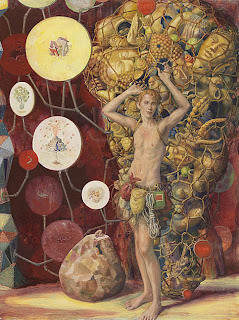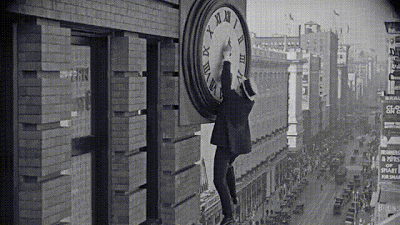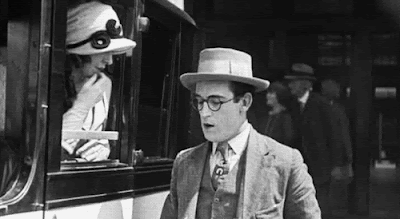It hurts to be in
love.
There is so much about it that hurts.
People don’t admit it, don’t talk about it. But I doubt if I am alone.
By "it", I mean IT, the need, want, passion, prayer to write. Often it’s lit inside you
in childhood, after falling into the disturbing wonderland of books.
When I look back
on it all, my “writer’s journey” (as so many of the more sickening how-to books
call it) has been rocky in the extreme. Long stretches of struggle and hard
work with tiny rewards, except for getting it down on the page. Brief
upflashings of what can only be called inspiration. One sweet, almost
unbelievable passage when I published my first novel and received the kind of
reviews a writer can only dream of (only to be followed by negligible sales and
quickly turning into box office poison).
Following that, I
had a void. I had an abyss. I had a time in my life when I wandered strange. I
don’t know what caused it. I had no way out, no compass. All I had were a few
friends to wave at me as I stumbled by.
During this interminable
time, I wondered if it was “all over”. It FELT over. I poured my feelings into
a journal so self-absorbed that I would never consider showing it to anyone
(though someone suggested I turn it into a blog – at a time when I barely knew
what a blog was).
I can’t remember,
except that I do, when the spark flared. I can’t quite find the end of the ball
of string. Except to say I had Turner Classics on (which I suppose reveals my
age, something around blltxyx years). It was a silent movie, black and
white, and someone was walking away from the camera. I could only see his back.
His back was –
what shall I say, jaunty? He was in character, obviously, and this was the way
he walked.
After a few
seconds, I said out loud, “That’s Harold Lloyd.”
I was not sure I
knew how I knew, and this reaction was to come up again and again in the next
couple of years while I beavered away at the novel. Yes, the novel: The
Glass Character, a fictionalized account of Harold Lloyd’s life seen through
the eyes of an obsessed fan who virtually stalks him for 300 pages.
Something happened
then: I fell back in love with the process. Every day I approached the computer
with excitement and joy. Surely THIS was the best thing I had ever written? If
not, why did I feel that way? I spent a year and a half researching and writing
about Lloyd, falling so in love with him along the way that I wondered if I had
lost my objectivity.
During the
writing, I would not talk about the project. I was close-mouthed. I knew if I
talked about it, I’d kill it. I sometimes blurted things to my husband, just so
I would not go insane with it, the isolation. When it was finished, I
cautiously talked about it to people who asked if I had written anything lately
(hoping, in that manner of people who hope you will fail, that I would avert my
eyes, shuffle my feet and say,
“Well. . . “)
Almost to a person, when I said it was about Harold Lloyd, I got a puzzled
look. One of those “I really do think you’re out of your mind and are making
things up, but I’ll iron out some of the crinkles in my forehead and tone down
the gimlets in my eyes in order to humour you”. Then when I explained,
stumblingly, “He was the silent movie comedian who climbed up the side of a
building and hung on to the hands of a huge clock”, I almost always got,
“Ohhhhhhh, THAT Harold Lloyd!”
And I’m sure they didn’t
know how they knew.
My dreams were high and dizzy. There would be a movie version, surely (which
I cast in my mind: never mind who, I’m not that masochistic), or at very least
a decent-sized book contract. I began the heartbreaking process all over again.
Every time I
talked to anyone about trying to market a manuscript, they always seemed to
say, “Just get an agent.” The “just” (which I am going to blog about, as I
think it’s a casual form of sadism or at least dismissal) felt like a sort of
“oh, quit kvetching, it would be easy if you did this the right way”. One, two, three, and you’re in.
Oh yes, I tried! I
tried. With my typical savage perseverance and propensity for running headlong
into a brick wall, I tried. I did work with an agent in the mid-2000s, and at
that time she actually approached me, a dizzying development. Of course I
grabbed at it, even if it didn’t work out.
This time it was
different.
Agents have to
make a go of it, and I can see why taking on things like books of poetry and
literary fiction won’t sustain them. They’d make next to nothing and starve to
death, as would their authors. That said, it was pretty heartbreaking not to be
considered at all: most of them would only look at non-fiction and
children’s books, preferably series.
A few at least
allowed me to send a sample of my work. The one that sticks out in my mind is
the agent who asked for “the first two pages”. I had to blink twice before that
sank in. The answer, based on those first two pages, was no.
That’s kind of
like evaluating a speech by the intake of breath before the speech even begins.
I’m not crazy
enough to get into the ins and outs of approaching conventional publishers,
except to say that one submissions page currently says that it is permissible
(though ONLY after your manuscript is accepted for publication) to mail it to
them on floppy discs. But along with this startlingly modern, Jetsons-like form, you must also mail the printed manuscript (typed on 8 ½ x
11” white paper, double-spaced, on one side of the page only and in 12-point pica
type or larger) along with it.
And all on your own dime.
Am I complaining
because nothing has happened? I don’t know, maybe. Have I just killed my chances because I quoted something from a publisher's web site, nearly verbatim? (To deal with the literary world is to be on permanent eggshells.) Is this novel not quite as
good as I thought? Hard to say. Did I lose my objectivity, fall in love with
Lloyd to such a degree that I could never write about him with the proper
detachment?
So what DOES sell
now? Fifty Shades of Grey, bad soft-core Mommy porn. Maybe I should have had Harold
Lloyd tied up and whipped.
Oh, and another
thing I constantly hear (along with, "Wasn't the fun of writing it enough?") is: “JUST self-publish”. Or epublish, interchangeably.
It’s a fast way to jump over all the barriers that “paper” publishers erect.
It’s true, this new-ish form does open a gate that often seems permanently closed
and barred. But the problem is that there are no standards. None.
I’ve been a book
reviewer for 30 years, and I think I have some capacity to judge. It’s the Wild
West: one big tidal wave of good, bad and indifferent. And the thing is, if
your work really is good and worthy to be read, how will anyone ever pick it
out of the flood?
People always quote an epublished success story, a “for-instance” like Fifty Shades or the latest Stephen King, but
isn’t that something like winning the lottery? After all, SOMEBODY has to win, don’t
they?
But unless you
were born under a brighter star than I was, I can almost guarantee you that it
won’t be you.
"You had me at hello"
Visit Margaret's Amazon Author Page!

































.jpg)



